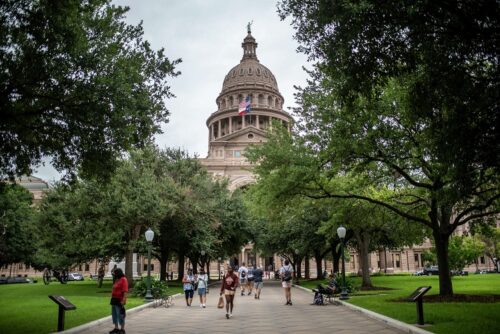
12.31.22 – Chronicle – Michael Murney
New year, new rules: These Texas laws go into effect on January 1. These new measures are going into effect in 2023. Here’s what that means.
As Texas heads into a new legislative session this coming year, laws passed and signed in 2021 are set to go into effect on New Year’s Day. The new laws include key property tax code revisions, an overhaul of the state’s judicial branch and beyond.
The following is a guide to some of the big-ticket measures and laws going into effect in Texas starting in 2023.
New property tax code revisions
Among the biggest items Texas will enact in the coming year is a sweeping bill revising the Texas Education Code, Government Code and Tax Code restricts public school districts’ ability to levy property taxes on constituents. SB 12 specifically sets restrictions on the amount of property tax school districts can levy on “an individual who is elderly or disabled.”
How will school districts make up for the loss of revenue this bill will likely cause? Among the bill’s numerous other provisions is a rule that will provide funds for districts facing budget shortfalls as a result of the forthcoming property tax reductions. Another bill from 2021’s legislative session that will directly affect how Texas’ public schools are funded is HB 1525, which sets restrictions on how local school districts can generate revenue from property taxes.
Judicial Branch Overhaul
Another major overhaul in Texas law in 2023 comes in the form of an omnibus bill reshaping Texas’ judicial branch of government. HB 3774 passed in Sep. 2021 and includes certain key sections that do not go into effect until 2023. Here are some of the highlights from the bill:
HB 3774 allows the public to access the state’s court document database–a remarkable move towards public access, with a big asterisk: if a member of the public wants to access the database, they must receive authorization from the Texas Supreme Court.
HB 3774 will also restructure the state’s court system by creating 10 district courts, five statutory county courts, one statutory probate court and one criminal law magistrate court. The bill’s other notable changes include granting magistrates of certain counties jurisdiction in criminal actions and revisions to procedures for the transfer of cases between courts, including standardization of documents used to transfer cases between courts.
New Air Pollution Rules
Another bill passed in 2021 going into effect on Jan. 1 stops local building codes from prohibiting the use of a “substitute refrigerant authorized pursuant to 42 U.S.C. 7671k,” referring to the federal Clean Air Act. In other words, Texas’s SB 1210 says building codes can’t impose restrictions stopping builders from using a substitute refrigerant authorized by the federal government’s Clean Air Act.
